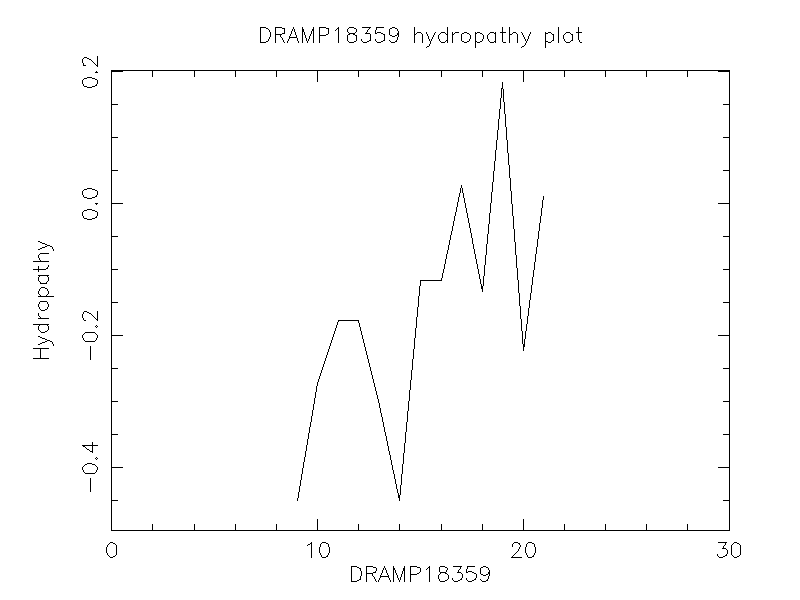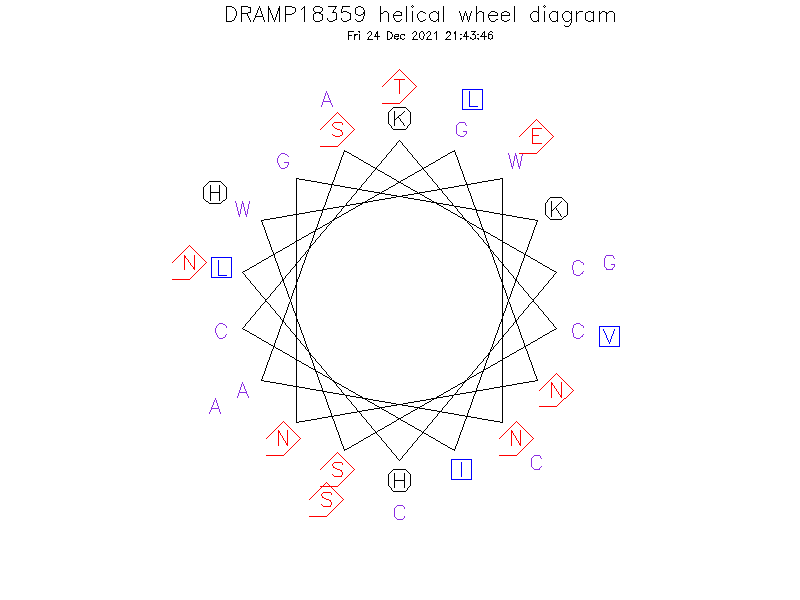General Information
-
DRAMP ID
- DRAMP18359
-
Peptide Name
- Sh-lantibiotic-alpha (bacteriocin)
-
Source
- human skin bacterium, Staphylococcus hominis A9
-
Family
- Belongs to the lantibiotic family.
-
Gene
- Not found
-
Sequence
- KCSWWNASCHLGNNGKICTVSHECAAGCNL
-
Sequence Length
- 30
-
UniProt Entry
- No entry found
-
Protein Existence
Activity Information
-
Biological Activity
- Antimicrobial, Antibacterial, Anti-Gram+
-
Target Organism
-
- Gram-positive bacteria: S. aureus.
-
Hemolytic Activity
-
- No hemolysis information or data found in the reference(s) presented in this entry
-
Cytotoxicity
-
- Not included yet
-
Binding Target
- Not found
Structure Information
-
Linear/Cyclic
- Not included yet
-
N-terminal Modification
- Not included yet
-
C-terminal Modification
- Not included yet
-
Nonterminal Modifications and Unusual Amino Acids
- Not included yet
-
Stereochemistry
- Not included yet
-
Structure
- Not found
-
Structure Description
- Not found
-
Helical Wheel Diagram
-
PDB ID
- None
-
Predicted Structure
- There is no predicted structure for DRAMP18359.
Physicochemical Information
-
Formula
- C133H202N42O40S5
Absent Amino Acids
- DFMPQRY
Common Amino Acids
- C
Mass
- 3207.64
PI
- 7.84
Basic Residues
- 4
Acidic Residues
- 1
Hydrophobic Residues
- 9
Net Charge
- +3
-
Boman Index
- -2845
Hydrophobicity
- -0.116
Aliphatic Index
- 56.77
Half Life
-
- Mammalian:1.3 hour
- Yeast:3 min
- E.coli:2 min
Extinction Coefficient Cystines
- 11250
Absorbance 280nm
- 375
Polar Residues
- 16
DRAMP18359

Comments Information
Function
- Active against S. aureus, but not commensal bacteria.
PTM
- Three thioether bonds are proposed
Literature Information
- ·Literature 1
-
Title
- Antimicrobials from human skin commensal bacteria protect against Staphylococcus aureus and are deficient in atopic dermatitis
-
Pubmed ID
- 28228596
-
Reference
- Sci Transl Med. 2017 Feb 22;9(378)
-
Author
- Nakatsuji T, Chen TH, Narala S, Chun KA, Two AM, Yun T, Shafiq F, Kotol PF, Bouslimani A, Melnik AV, Latif H, Kim JN, Lockhart A, Artis K, David G, Taylor P, Streib J, Dorrestein PC, Grier A, Gill SR, Zengler K, Hata TR, Leung DY, Gallo RL.

